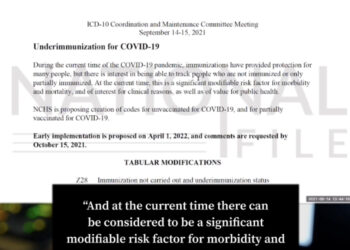Democrats from all walks of the Liberal sphere are railing against one of their former presidential candidates for citing the conservative Project Veritas in her call for a ban on ballot harvesting.
US Representative Tulsi Gabbard (D-HI), is co-sponsoring a bill with US Rep. Rodney Davis (D-IL), to ban the practice of ballot harvesting from coast to coast. Ballot harvesting is the practice in which third parties are authorized to collect absentee and mail-in ballots from unrelated voters to submit in an election.
Gabbard took to social media to promote her legislation after undercover videos by the watchdog Project Veritas showed people allegedly engaging in ballot harvesting and pay-for-vote schemes.
“Project Veritas offers further evidence of the need to ban ballot harvesting,” she tweeted Monday. “It’s not a partisan issue. It’s been abused to help both R & D candidates, including in North Carolina & California. Please help by telling your congressional rep to pass our bipartisan bill HR8285.”
https://twitter.com/TulsiGabbard/status/1310768812883496966
“Right now, there are still many states in our country that allow for something called ballot harvesting. This is a system that allows for third parties to collect and deliver ballots for other people, potentially large numbers of people. Unfortunately, ballot harvesting has allowed for fraud and abuse to occur by those who could tamper with or discard ballots to try to sway an election for or against a certain candidate or party,” Gabbard said in a video statement about the bill.
BOMBSHELL: Ilhan Omar Connected Harvester EXCHANGES $200 for A General Election Ballot ON VIDEO!
"We don't care illegal."…"We are taking the money and we'll vote for you" "@IlhanMN is the one who came up with all this"#CashForBallots pic.twitter.com/DCSLfjHeD6
— Project Veritas (@Project_Veritas) September 29, 2020
26 States allow ballot harvesting in one form or another. A dozen of those states limit the number of ballots a designee can collect and/or return on behalf of other non-related voters. Ten states allow a ballot to be returned by a voter’s family member.
In 2016, well before the coronavirus pandemic, California expanded its ballot collection program to not only allow any person (not just a relative or housemate) to collect an absentee ballot, but to be compensated for the act.
Experts in voter fraud believe that the type of ballot harvesting allowed under California law is vulnerable to voter fraud.





















